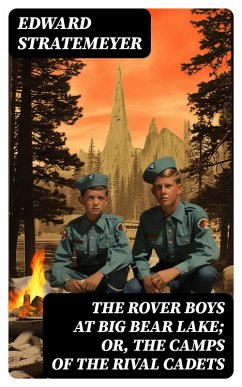In "The Rover Boys at Big Bear Lake; or, The Camps of the Rival Cadets," Edward Stratemeyer masterfully weaves a tale that combines adventure, camaraderie, and the vibrant essence of youth. Set against the backdrop of the picturesque Big Bear Lake, this installment of the Rover Boys series elucidates the spirited rivalry between two camps while simultaneously exploring themes of friendship, perseverance, and moral integrity. Stratemeyer's engaging narrative style, punctuated by humor and accessible language, reflects the early 20th-century youth literature that sought to entertain while imparting moral lessons to its young audience. Edward Stratemeyer, a prolific figure in children's literature, gained insights into youth engagement and adventure through his own experiences as a young boy in New Jersey. His deep understanding of the aspirations and challenges faced by the youth of his time fueled his desire to create relatable characters and thrilling plots. The Rover Boys series, launched in 1899, was part of a larger trend in literature that aimed to inspire a sense of adventure and ethical grounding among its readers, mirroring Stratemeyer's own values. This captivating narrative is highly recommended for readers who appreciate spirited adventure tales that celebrate the joys and challenges of youth. Stratemeyer's timeless storytelling not only entertains but also imparts valuable life lessons, making this book a delightful addition to any young reader's collection.
Dieser Download kann aus rechtlichen Gründen nur mit Rechnungsadresse in A, B, BG, CY, CZ, D, DK, EW, E, FIN, F, GR, H, IRL, I, LT, L, LR, M, NL, PL, P, R, S, SLO, SK ausgeliefert werden.









